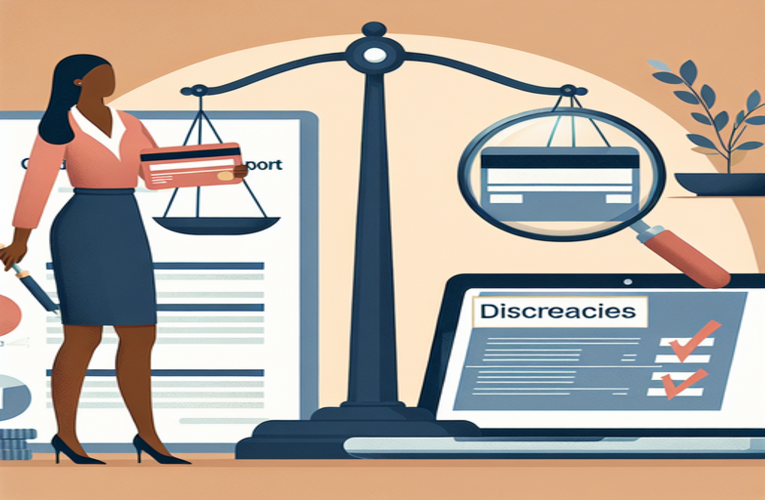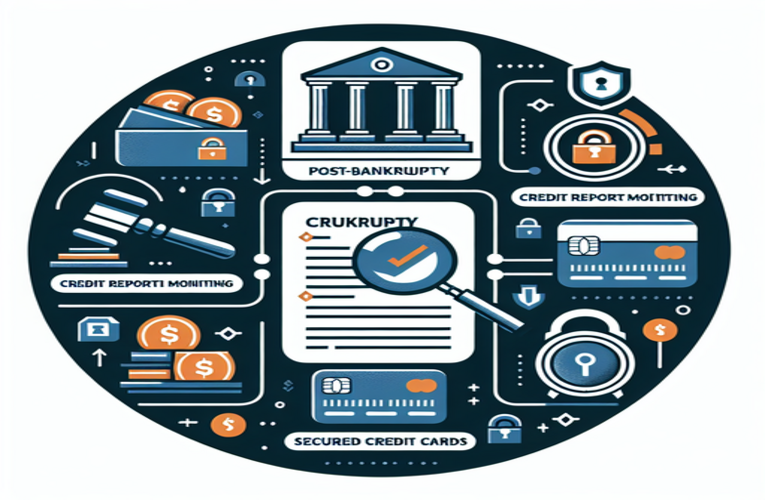Choosing the right time to apply for a business loan: assessing your financial health and economic conditions
In today’s dynamic business environment, understanding your financial position before deciding when to apply for a business loan is crucial for success. Timing your business loan application effectively can enhance your chances of approval and lead to more favorable terms from lenders. This article serves as a comprehensive guide to evaluating financial health prior to securing financing, ensuring that you are well-prepared to navigate the complexities of business funding at the right moment.
In this article, we will discuss:
- The importance of assessing your Debt Service Coverage Ratio (DSCR) to determine your capacity to meet debt obligations.
- Analyzing cash flow and revenue patterns to identify growth opportunities.
- Understanding credit scores and their impact on loan options and terms.
- Evaluating external economic factors that influence the timing of your loan application.
- Identifying key indicators that signify the optimal time to apply for a business loan.
By integrating market research and conducting a thorough internal review, you will gain valuable insights that can empower your business to make informed financial decisions. Whether you’re looking to expand operations or strengthen your financial standing, this article will equip you with practical strategies to assess your business’s readiness and determine the best time to apply for a loan, helping you maximize your potential for success.
Table of Contents
Evaluating financial health prior to securing a business loan
Before embarking on the journey of securing a business loan, it is essential to conduct a comprehensive assessment of your company’s financial health. Choosing the right time to apply for a business loan is crucial; timing can be pivotal, as selecting the optimal moment to seek financing can dramatically influence both your chances of approval and the terms offered by lenders. To determine the best time to apply for financing, initiate this process by examining critical financial metrics, particularly the debt service coverage ratio (DSCR). A DSCR above one indicates that your earnings are sufficient to meet debt obligations, positioning you favorably for access to competitive interest rates. For example, a DSCR of 1.5 means your net operating income is 150% of your total debt service, which can greatly enhance lender confidence.
- Debt Service Coverage Ratio (DSCR): Indicates your ability to meet debt obligations. A higher DSCR suggests stronger financial stability.
- Cash Flow and Revenue Patterns: Assess if there’s consistent sales growth. Steady or increasing cash flow signals a healthy business.
- Credit Score: Regularly review to access better financing options. A strong credit score can lead to lower interest rates and more favorable terms.
Following this initial analysis, delve into your cash flow and revenue patterns. Are you experiencing consistent sales growth? If your business demonstrates a trend of increasing sales, it may signify a prime opportunity to apply for a business loan, especially if you have concrete plans for utilizing those funds—be it to solidify operations or pursue expansion initiatives. For instance, a company experiencing a 20% annual growth rate might need additional capital to scale effectively. Monitoring your credit score is equally crucial, as a higher rating generally correlates with more advantageous financing options. According to leading financial institutions, businesses with credit scores above 80 on the PAYDEX scale are more likely to secure loans with favorable terms. Financial advisors recommend regularly reviewing your credit history; a robust score not only opens doors to various financing avenues but also empowers you in negotiations with lenders.
| Metric | Description | Impact on loan application |
|---|---|---|
| DSCR | Measures ability to cover debt obligations | DSCR > 1 favors competitive interest rates |
| Sales Growth | Increasing sales trend | Indicates opportunity for loan application |
| Credit Score | Assessment of creditworthiness | Higher scores offer better terms |
Moreover, integrating market research into your evaluation adds another layer of depth to your understanding of the optimal time to apply for a business loan. Consider the external economic landscape: are interest rates currently favorable? For example, if national interest rates have dropped by 2%, borrowing now could save significant costs over the loan’s duration. Are there new trends emerging in your sector? Staying informed about industry developments can help you capitalize on growth opportunities. For instance, if there’s a noticeable uptick—say, a 15% increase—in consumer demand for your products or services, acquiring financing now to act on this momentum could prove vital for your growth strategy. Timing your loan application to coincide with positive market conditions can enhance approval odds and secure better terms.
The decision regarding when to submit a loan application is one that demands careful consideration. By conducting a meticulous internal review and gaining insights into market dynamics, you equip your business for success. Projecting your financial requirements with precision enables you to navigate the intricacies of business financing effectively. Consistently assessing financial health and understanding market conditions will ensure that you choose the right time to pursue a business loan. This strategic approach can ultimately pave the way for your company’s growth and stability, allowing you to seize opportunities as they arise and secure financing under the most favorable terms.
Analyzing economic factors impacting business loan applications
Understanding the economic factors that influence the timing of business loan applications is essential for businesses aiming to secure the best possible financing options. Several elements—such as interest rates, inflation rates, and market demand—play a crucial role in not only the feasibility of acquiring a loan but also the specific terms associated with it. For example, during periods when the federal funds rate is low, banks may offer loans with reduced interest rates, making it an opportune time to apply for financing intended for expansion or capital investments.
- Interest Rates: Low rates decrease borrowing costs, making it a favorable time for loans aimed at growth or equipment upgrades. A 1% decrease in interest rates can result in substantial savings over a loan’s term.
- Inflation Rates: High inflation can lead to stricter lending standards, less favorable terms, and potential loan denials. Lenders may increase interest rates to offset inflation risks.
- Market Demand: During economic downturns, reduced consumer spending can impact loan conditions. Conversely, high market demand can justify the need for additional capital.
To improve your chances of securing a business loan, consider the following:
- Regularly observe macroeconomic trends to align your application with positive financial conditions. Monitoring indicators like GDP growth and consumer confidence can inform your timing.
- Analyze seasonal trends within your industry to time your loan use optimally. For example, retailers might seek financing before the holiday season to increase inventory.
- Maintain a comprehensive understanding of your business’s financial health, including:
- Thorough examination of your debt service coverage ratio (DSCR) to ensure you can handle additional debt.
- Effective management of existing liabilities to present a solid financial profile to lenders.
- Ensuring strong cash flow to support new obligations, demonstrating your capacity to repay the loan.
Being proactive and strategically timing your loan application can yield considerable long-term advantages. For instance, securing a loan when market conditions are favorable can result in lower interest rates and better terms, saving your business money over time. Understanding both your internal business requirements and the external economic climate will significantly enhance your success in obtaining a loan under the best possible conditions. This approach allows you to leverage favorable market conditions and align your financing needs with optimal economic periods, ultimately supporting your business’s growth and financial stability.
Identifying key indicators for applying for a business loan
Determining the appropriate moment for seeking a business loan can profoundly impact your company’s growth and overall financial stability. Recognizing the key indicators that signal it’s the right time to apply for financing can guide your decision-making process effectively. By paying attention to specific financial metrics and market conditions, you can make informed decisions that align with your business goals.
- Debt Service Coverage Ratio (DSCR): A healthy DSCR, ideally above one, indicates that your earnings exceed your debt obligations. This suggests that your business can manage further financing without jeopardizing current operations. For example, a DSCR of 2.0 means you earn twice the amount needed to cover debt payments, which is highly attractive to lenders.
- Sales Expansion: If your business experiences a surge in sales and has plans for expansion—such as hiring new personnel or initiating a marketing strategy—this may signal an optimal time to seek financing. Expansion often requires additional resources, and a well-timed loan can provide the necessary capital to seize growth opportunities effectively.
- Seasonal Demand Variability: Many businesses face fluctuations in demand based on seasonal cycles. If your industry is approaching a peak season, you may require temporary cash flow support to manage operational expenses. For instance, an ice cream shop may seek a loan before summer to stock up on supplies.
- Credit Profile Assessment: A strong credit score is vital in the quest for favorable loan conditions. A well-established credit history not only boosts your eligibility for financing but also grants access to lower interest rates and improved loan terms. Staying informed about your credit status can empower you to negotiate better deals with potential lenders.
- Market Conditions: Awareness of current economic trends plays an essential role. For instance, a favorable economic climate, characterized by low-interest rates and increased investment activity, can enhance your chances of securing a loan. Timing your application to align with market conditions can maximize your financial advantages.
| Indicator | Implication | Action |
|---|---|---|
| DSCR | Earnings exceed debt obligations | Consider further financing |
| Sales Expansion | Surge in sales | Seek financing for growth opportunities |
| Market Conditions | Favorable economic climate | Align application timing with conditions |
By closely monitoring these indicators and conducting a comprehensive evaluation of your business’s financial landscape, you will be well-prepared to determine the most advantageous time to apply for a business loan. This strategic decision-making ensures that you choose the best time to apply for financing, aligning your needs with optimal internal and external conditions. This proactive approach not only enhances your chances of loan approval but also enables you to secure better terms and rates. Ultimately, this empowers you to leverage opportunities for sustainable growth, facilitating your company’s success in competitive markets.
Summary
Before deciding on the optimal timing to request a business loan, it’s essential to evaluate your financial health to enhance your chances of approval and secure favorable terms. Here are the crucial points to consider:
- Assess your Debt Service Coverage Ratio (DSCR): A DSCR above one indicates sufficient earnings to meet debt obligations, positioning you favorably for competitive interest rates when timing your loan application.
- Analyze cash flow and revenue patterns: Consistent sales growth can signify an opportune moment for applying for a business loan, particularly if tied to expansion plans.
- Monitor your credit score: A strong credit score improves your financing options, enabling better terms and negotiations with lenders, thereby influencing the best time to seek business financing.
- Understand economic factors: Consider interest rates, inflation, and market demand as these can significantly impact loan terms and conditions, affecting when it’s wise to apply for a business loan.
- Identify key indicators for timing: A healthy DSCR, sales expansion, seasonal demand, and favorable market conditions indicate that it may be the right moment to seek financing, such as choosing the right time to apply for a business loan.
Integrating market research with your financial evaluation allows you to make informed decisions, ensuring that your business is strategically positioned to maximize success in securing a business loan at the right time.
Frequently Asked Questions
What should I do if my DSCR is below one?
If your Debt Service Coverage Ratio (DSCR) is below one, it indicates that your business’s operating income is insufficient to cover its debt obligations. To enhance your DSCR and improve your eligibility for a business loan, consider strategies such as reducing operational expenses, boosting revenue through effective sales and marketing tactics, or restructuring existing debts. Taking these steps before applying for a business loan can help you demonstrate stronger financial health and reliability to potential lenders.
How can I improve my credit score before applying for a business loan?
To improve your credit score in preparation for a business loan application, regularly review your credit report to identify and rectify any discrepancies or errors. Pay off outstanding debts, ensure timely payments on all your financial obligations, and reduce your credit utilization ratio. Additionally, refrain from taking on new debts shortly before your loan application to maintain a strong and favorable credit profile, which can significantly enhance your chances of securing a business loan with better terms.
How do seasonal fluctuations affect my loan application?
Seasonal fluctuations can impact your business’s cash flow and operational expenses, which are critical factors lenders consider during a business loan application. If your business experiences increased demand during specific periods, applying for a loan before peak seasons can help you manage upfront costs and take advantage of sales growth opportunities. Conversely, applying for a loan during slower periods may affect lender perception of your business’s stability and viability. Properly timing your loan application in relation to seasonal trends can improve your chances of approval.
What are some common mistakes to avoid when applying for a business loan?
Common mistakes when applying for a business loan include not conducting thorough financial assessments, failing to prepare and organize necessary documentation, applying without a clear and defined purpose for the loan, and not comparing multiple lenders to find the best terms. Additionally, neglecting to create a comprehensive business plan and misunderstanding your financial metrics can hinder your application process. Avoiding these pitfalls by being well-prepared and informed will enhance your chances of securing favorable business loan terms.
How often should I review my financial health?
It is advisable to regularly review your business’s financial health, ideally on a quarterly basis. This includes assessing key metrics such as cash flow, debt obligations, profit margins, and your credit score. By maintaining consistent financial monitoring, you can promptly identify and address any issues, make informed decisions, and effectively prepare for future financing needs, thereby strengthening your position when applying for a business loan.
What role does market research play in preparing for a loan application?
Market research plays a crucial role in preparing for a business loan application by helping you understand current industry trends, consumer behavior, and the competitive landscape. By being informed about market conditions, you can identify the optimal timing for your loan application and provide data-driven justifications for your financing request. Demonstrating anticipated growth and demand in your sector through thorough market research can strengthen your loan application and persuade lenders of your business’s potential.
Can I apply for a business loan if I have existing loans?
Yes, you can apply for a business loan even if you have existing loans. However, lenders will assess your debt-to-income ratio and overall financial health to determine your ability to manage additional debt. If you have a manageable level of existing debt and a strong repayment history, it may still be possible to secure additional financing. Ensuring that your current loans are in good standing and demonstrating your capacity to handle more debt can improve your chances of approval.
What should I include in my business plan when applying for a loan?
When applying for a business loan, your business plan should include an executive summary, detailed information about your business model, comprehensive market analysis, financial projections, and a clear explanation of how you plan to use the loan proceeds. Providing well-organized and convincing information will help lenders understand your business operations, assess the risk associated with your application, and evaluate your potential for growth, thereby increasing the likelihood of securing the desired financing.
How can I leverage my business’s growth potential in loan discussions?
You can leverage your business’s growth potential in loan discussions by presenting data on sales trends, market demand, and planned expansions. Provide concrete examples of how the loan will facilitate growth initiatives, such as launching new products, entering new markets, or implementing strategic marketing campaigns. Demonstrating a clear growth strategy backed by factual data can persuade lenders of your business’s potential and the positive impact of the loan on your company’s success.
What types of loans are best for small businesses?
Small businesses may benefit from various types of loans, including term loans, lines of credit, SBA (Small Business Administration) loans, or equipment financing. The best loan option depends on your specific business needs, such as obtaining working capital, purchasing equipment, or funding expansion projects. Assessing your financial situation and consulting with financial advisors can help you determine the most suitable type of business funding that aligns with your objectives and enhances your eligibility for a successful loan application.




















